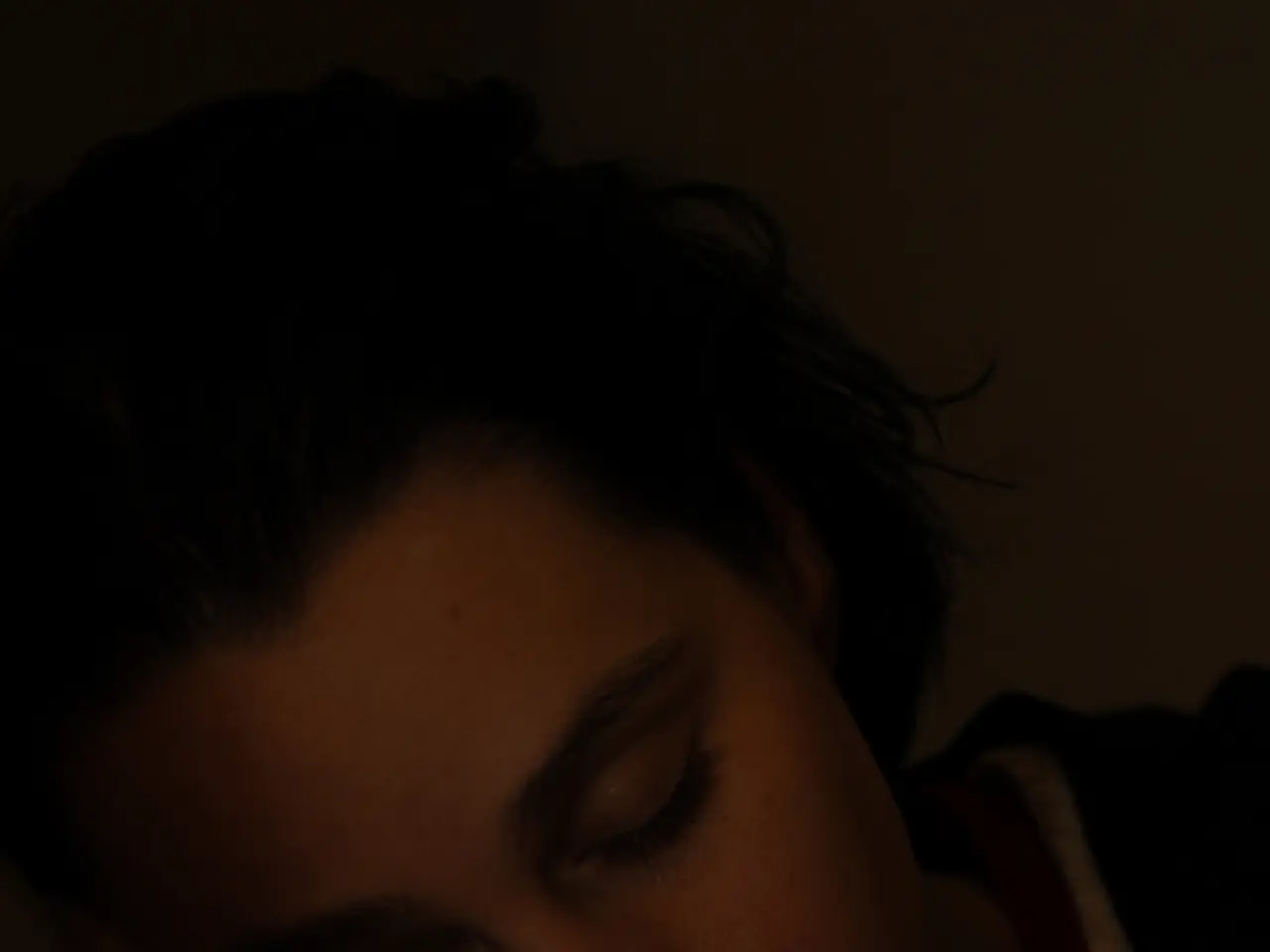Nighttime Asthma: Identification, Triggers, and Signs
Nocturnal asthma is a condition that affects both children and adults, causing symptoms to worsen during the night. This form of asthma can lead to increased morbidity, meaning a state of poor or decreasing health.
Symptoms of nocturnal asthma include coughing, wheezing, shortness of breath, chest tightness, and difficulty sleeping, often leading to awakening due to breathing trouble. These symptoms can disrupt sleep and quality of life.
Nocturnal asthma is often caused by nighttime exposure to triggers such as allergens (dust mites, pollen, pet dander, mold), cold air, respiratory infections, irritants like smoke or strong odors, airway inflammation, and sometimes underlying conditions like acid reflux or panic disorder.
Inhaled corticosteroids are often the foundation of treatment for nocturnal asthma. Long-term medications for asthma also include inhaled long-acting beta agonists (LABAs), agents affecting leukotriene synthesis or action, and oral corticosteroids. Long-acting beta agonists may be added to the treatment plan if inhaled corticosteroids aren't sufficient, while agents affecting leukotriene synthesis or action are typically used as add-on therapy in patients who don't get enough relief from the previous two medications. Oral corticosteroids are for people with severe asthma that doesn't respond to other treatments.
The difference between daytime and nighttime lung function measurements can indicate nocturnal asthma. If the difference is greater than 15%, the individual likely has nocturnal asthma.
Treatment involves a combination of strategies: using prescribed long-term asthma control medications (such as inhaled corticosteroids and leukotriene modifiers), quick-relief rescue inhalers during attacks, avoiding known triggers especially at night (e.g., dust mites, cold air), and following a personalized asthma action plan from a healthcare provider.
Managing associated conditions like GERD (acid reflux) with medications and lifestyle adjustments, improving sleep environment, and maintaining overall health (such as getting flu vaccines) also help reduce nocturnal symptoms. Physical activity can help reduce the severity of nocturnal asthma symptoms in both children and adults.
Additional supportive approaches, particularly for children, include breathing exercises and natural remedies like honey for nighttime cough (in kids older than 1 year), but these should complement prescribed asthma treatments, not replace them. Monitoring lung function with peak flow meters and avoiding exposure to irritants indoors during night further aid control.
It's important to note that obesity increases the risk of nocturnal asthma. Nocturnal asthma and Obstructive Sleep Apnea (OSA) have many of the same symptoms. If an individual thinks they may have OSA, they should contact their doctor. Most deaths related to asthma symptoms occur during the night.
The American Lung Association (ALA) recommends people with asthma visit a doctor annually to review and potentially revise their asthma treatment plan. By understanding nocturnal asthma and taking proactive steps to manage it, individuals can improve their quality of life and reduce the impact of this condition on their health.
[1] American Lung Association. (2021). Nocturnal Asthma. Retrieved from https://www.lung.org/lung-health-diseases/asthma/living-with-asthma/nocturnal-asthma
[2] National Heart, Lung, and Blood Institute. (2021). Nocturnal Asthma. Retrieved from https://www.nhlbi.nih.gov/health-topics/nocturnal-asthma
[3] Mayo Clinic. (2021). Nocturnal Asthma. Retrieved from https://www.mayoclinic.org/diseases-conditions/asthma/in-depth/nocturnal-asthma/art-20045861
[5] Cleveland Clinic. (2021). Nocturnal Asthma. Retrieved from https://my.clevelandclinic.org/health/diseases/16710-nocturnal-asthma
- Some people with nocturnal asthma might be naive to the effects of their condition, as they may not realize the increased morbidity associated with it.
- Seekers of effective treatment for their nocturnal asthma may find relief in a combination of strategies, such as using prescribed medications and avoiding known triggers.
- Science has identified various personas that may be susceptible to nocturnal asthma, including those with chronic diseases, respiratory conditions, or even mental health issues.
- A lack of sleep caused by nocturnal asthma symptoms can exacerbate the condition, as well as negatively impact a person's overall health and wellness.
- Inhaled corticosteroids and long-acting beta agonists (LABAs) are among the key personas in medical-treatment plans for nocturnal asthma, offered by healthcare providers.
- Switchers in asthma treatment plans may find additional relief in add-on therapy like leukotriene modifiers or lifestyle adjustments, particularly with regards to sleep environment or weight management.




